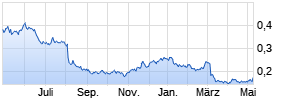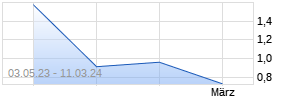
Capita plc - IFRS 15 early adoption and presentation
PR Newswire
London, September 6
IFRS 15 early adoption and presentation
Capita plc (‘Capita’) is today hosting a presentation for institutional investors and analysts on the application of the International Accounting Standards Board's IFRS 15, Revenue from Contracts with Customers which, as previously stated, the Group adopted from 1 January 2017. Capita’s results for the first six months of 2017 are due to be released, as planned, on 21 September and are expected to be in line with the outlook provided in our AGM statement on 13 June 2017.
Summary of key points of adopting IFRS 15:
No impact on:
• Lifetime profitability of contracts
• Cash flow of contracts
• Majority of transactional businesses.
Key impacts:
• The main changes for Capita from the adoption of IFRS 15 are in its long-term contracts and software business.
• Revenue is more evenly phased over the life of contracts and active software licences in line with the delivery of valued outcomes to clients and, consequently, the timing of profits is re-profiled.
• Capita will potentially recognise lower profits or losses in the early years of contracts where there are significant upfront restructuring costs or higher operating costs prior to transformation, with a compensating increase in profits in later years. The total net impact at Group level is a function of the balance of contracts in early or late stage of their life cycle at transition to IFRS 15.
• Balance sheet includes:
• New “contract fulfilment assets” created in the process of transforming services
• Deferred income in relation to contracts where payments have been received from clients to undertake transformation prior to the planned outcomes being delivered.
Nick Greatorex, Group Finance Director, commented:
“We believe early adoption of IFRS 15 is a sensible step to take in this transitional year for Capita. Adoption in 2017 immediately provides a consistent basis for our investors to evaluate our business going forwards. It ensures we have embedded the new standard well in advance of the 2018 deadline and is in line with our strategy of simplifying the business and improving transparency.
The new standard more closely aligns our revenue recognition with the commercial substance of our contracts. The application of IFRS 15 has no impact on the lifetime profitability or cash flow of our contracts, or the majority of our transactional businesses. Instead, the resulting changes in the timing of revenue and cost recognition more closely aligns our financial results with the timing of the delivery of our valued outcomes to clients.
For comparative purposes, we have applied the new standard to our 2016 financial results with support from EY and these financial results have been reviewed by KPMG.”
Capita’s adoption of IFRS 15
Revenue recognition
• The standard introduces a clear link between the value provided to a client via the transformation and delivery of a service and the timing of revenue recognition. For the majority of Capita’s contracts this value is delivered over time, regardless of upfront restructuring, necessary transformation activities and any price step downs over the life of the contract. This means that under IFRS 15 revenue will be recognised more evenly over the lifetime of those contracts, which will affect 2017 and future years.
• Similarly, for software licences where the Group retains an active role in the updating and maintenance of a sold licence to ensure its continuing value to the client, revenue will be recognised evenly over the expected length of the contract or related client relationship. Again, this has resulted in a change in the phasing of when revenue is recognised, which will affect 2017 and future years.
Profits
• As a result of the above, the timing of revenue and therefore profits recognised on contracts is likely to be later across the life of the contracts, with potentially lower profits or losses in the early years of contracts and potentially higher profits in later years. This occurs where there are significant upfront restructuring, transformation, or higher operating costs prior to completion of transformation.
• Profits are further impacted by a new class of asset, “contract fulfilment assets”, which are created in the process of transforming a service and amortised over the life of the associated contract, such as process mapping and design.
• Total net impact for the Group is a function of the balance of contracts in early or late stages of their life cycle at transition to IFRS 15 and in subsequent years.
Balance sheet
• The balance sheet includes:
• The new contract fulfilment assets; and
• An increased level of deferred income in relation to contracts where cash payment has been received in advance of revenue recognition associated with delivering specific planned outcomes for clients. The majority of deferred income will unwind within the following 12 months and is expected to be replaced by similar advanced payments subject to additions or changes to the Group’s contract portfolio.
• The recognition of the significant deferred income balances results in the Group recording net liabilities on 1 January 2016. As noted above, the deferred income reflects cash payments received in advance of when revenue will now be recognised on the majority of our contracts and the accounting liability represents our promise to deliver planned outcomes for clients in future periods.
Application of IFRS 15 to Capita’s 2016 results:
As part of its early adoption of IFRS 15 and for consistent comparability, Capita has applied the new standard to its 2016 financial results and these are published today. The Capita Asset Services businesses, the disposal of which was announced on 23 June, have been treated as a discontinued operation.
The changes reflected in the 2016 results under IFRS 15 predominantly relate to the timing of revenue recognition with revenues now recognised later across the life of contracts as valued outcomes are delivered to clients.
Revenue, under IFRS 15, in 2016 therefore reflects changes in the timing of recognition of transformation revenue and price step downs across some major contracts, the impact of recognising revenue over time for certain clients within our software business rather than at the point of sale of licences and additionally an adjustment in moving from principal to agency accounting in certain transactional businesses.
Profit before tax, under IFRS 15, in 2016 therefore reflects the aforementioned changes in the timing of revenue recognition across some major contracts and software licences, the amortisation charge of the new contract fulfilment assets, and the inclusion of certain non-recurring items previously disclosed within non-underlying.
Under IFRS 15, 2016 results major movements
In 2016 the impact of applying IFRS 15 was a reduction in underlying revenue from £4.6bn (excluding Capita Asset Services businesses £0.3bn) to £4.4bn, approximately three fifths of which is due to the re-profiling of long-term contracted revenue. The remaining changes result from a move from principal to agent basis of revenue recognition for certain transactional revenue under IFRS 15, which has no impact on profit.
In 2016 the impact of applying IFRS 15 was a reduction in underlying operating profit from £481m to £335m. This is as a result of a blend of impacts, the most significant of which are the aforementioned change in long-term contracted revenue and moving last year’s Group re-structuring provision of £59m into underlying profits. This is consistent with the approach Capita will adopt in the future where the impact of significant new contracts and restructuring will form part of the Group’s underlying earnings, albeit disclosed clearly to show the impact these items have in the first year that they arise.
The Group’s net assets move from £483m to net liabilities of £553m. The £1bn swing can be summarised as follows. Under IFRS 15 Capita ended 2016 with deferred income of £1.6bn, an increase of £1.3bn. This represents cash received in 2016 which is for services delivered or to be delivered but not recognised as revenue until 2017 or later. Furthermore, accrued income reduces by some £250m with the re-profiling of when revenue is recognised. These were partially offset by contract fulfilment assets of some £300m at the end of the year, being costs incurred on improving services for the long term which have been capitalised under IFRS 15 and will be released over the relevant contract term, and the recognition of a net deferred tax asset of some £200m.
Capita's 2016 debt covenants do not need to be retested and for 2017 the covenants have been updated to include the adoption of IFRS 15 with effect from 1 January 2017.
Finally, cash flow does not change. In 2016 Capita generated £750m of operating cash and this remains the case.
| 2016 full year | IFRS 15 | Pre-IFRS 15 |
| Underlying revenue | £4,357m | £4,582m |
| Underlying operating profit | £335m | £481m |
| Net (liabilities)/assets | £(553)m | £483m |
| Underlying operating cash | £750m | £750m |
Presentation and webcast
Today’s presentation will commence at 08:30 UK time and is expected to conclude at around 11:00 UK time, including a question and answer session. There will be a live audio webcast of the presentation at 08:30 UK time and slides will be available on the Capita website at that time.
Link: http://www.investis-live.com/capita/5994012e0954050c000f1919/qzmn
To register for the webcast please click on the link above and follow the on-screen instructions.
-ENDS-
This announcement contains inside information.
For further information:
Capita plc
Tel: 020 7799 1525
Shona Nichols, Executive Director, Communications
Andrew Ripper, Head of Investor Relations
Media enquiries
Powerscourt Tel: 020 7250 1446
capita@powerscourt-group.com
Victoria Palmer-Moore, Peter Ogden and Andy Jones
About Capita
Capita is a leading UK provider of technology enabled customer and business process services and integrated professional support services. With 73,000 people at over 450 sites, including 98 business centres across the UK, Europe, India and South Africa, Capita uses its expertise, infrastructure and scale benefits to transform its clients' services, driving down costs and adding value. Capita is quoted on the London Stock Exchange (CPI.L). Further information on Capita can be found at: www.capita.com.
Financial statements under IFRS 15 Revenue from Contracts with Customers
The Group early adopted IFRS 15 Revenue from Contracts with Customers ("IFRS 15") on 1 January 2017 using the full retrospective method. This document details the Group's new accounting policy for revenue and shows the impact of the adoption of IFRS 15 on the Group’s primary financial statements.
The cumulative effect of the adoption of IFRS 15 has resulted in a decrease in net assets of £942.3 million as at 1 January 2016 (31 December 2016: £1,036.3million). This reflects an important change in accounting policy as the Group moves from one based predominantly on percentage of completion revenue recognition to a methodology that is focused on aligning revenue recognition to the delivery of solutions and value to its customers.
Discontinued operation
The Capita Asset Services businesses, the disposal of which was announced on the 23 June 2017, have been treated as a discontinued operation in this restatement so as to be in line with how these will be presented in the 2017 half year report. As at 31 December 2016, the disposal of Capita Asset Services did not meet the criteria to be held for sale.
Initial adoption of IFRS 15
The standard has an effective date of 1 January 2018 but the Group has decided to early adopt this standard with a date of initial application to the Group of 1 January 2017.
IFRS 15 replaces all existing revenue requirements in IFRS and applies to all revenue arising from contracts with customers unless the contracts are within the scope of other standards such as IAS 17 Leases.
The standard outlines the principles entities must apply to measure and recognise revenue with the core principle being that entities should recognise revenue at an amount that reflects the consideration to which the entity expects to be entitled in exchange for fulfilling its performance obligations to a customer.
The principles in IFRS 15 must be applied using the following 5 step model:
- Identify the contract(s) with a customer
- Identify the performance obligations in the contract
- Determine the transaction price
- Allocate the transaction price to the performance obligations in the contract
- Recognise revenue when or as the entity satisfies its performance obligations
The standard requires entities to exercise considerable judgement taking into account all the relevant facts and circumstances when applying each step of this model to its contracts with customers. The standard also specifies how to account for the incremental costs of obtaining a contract and the costs directly related to fulfilling a contract as well as requirements covering matters such as licences of intellectual property, warranties, principal versus agent assessment and options to acquire additional goods or services.
The Group has applied IFRS 15 fully retrospectively in accordance with paragraph C3 (a) of the standard restating the prior period’s comparatives and electing to use the following expedients:
- In respect of completed contracts, the Group will not restate contracts that (i) begin and end within the same annual reporting period; or (ii) are completed contracts at the beginning of the earliest period presented (para. C5(a));
- In respect of completed contracts that have variable consideration, the Group will use the transaction price at the date the contract was completed rather than estimating variable consideration amounts in the comparative periods (para. C5(b)); and
- For all reporting periods presented before the date of initial application, the Group will not disclose the amount of the transaction price allocated to the remaining performance obligations or an explanation of when the Group expects to recognise that amount as revenue (para C5(c)).
Accounting policy for revenue
The Group generates revenue largely in the UK and Europe.
The Group operates a number of diverse businesses and accordingly applies a variety of methods for revenue recognition, based on the principles set out in IFRS 15. Many of the contracts entered into are long term and complex in nature given the breadth of solutions the Group offers.
The revenue and profits recognised in any period are based on the delivery of performance obligations and an assessment of when control is transferred to the customer.
In determining the amount of revenue and profits to record, and related balance sheet items (such as contract fulfilment assets, capitalisation of costs to obtain a contract, trade receivables, accrued income and deferred income) to recognise in the period, management is required to form a number of key judgements and assumptions. This includes an assessment of the costs the Group incurs to deliver the contractual commitments and whether such costs should be expensed as incurred or capitalised. These judgements are inherently subjective and may cover future events such as the achievement of contractual milestones, performance KPIs and planned cost savings. In addition, for certain contracts, key assumptions are made concerning contract extensions and amendments, as well as opportunities to use the contract developed systems and technologies on other similar projects.
Revenue is recognised either when the performance obligation in the contract has been performed (so 'point in time' recognition) or 'over time' as control of the performance obligation is transferred to the customer.
For all contracts, the Group determines if the arrangement with a customer creates enforceable rights and obligations. This assessment results in certain Master Service Agreements (‘MSA’s’) not meeting the definition of a contract under IFRS 15 and as such the individual call-off agreements, linked to the MSA, are treated as individual contracts.
The Group enters into contracts which contain extension periods, where either the customer or both parties can choose to extend the contract or there is an automatic annual renewal, and/or termination clauses that could impact the actual duration of the contract. Judgement is applied to assess the impact that these clauses have when determining the appropriate contract term. The term of the contract impacts both the period over which revenue from performance obligations may be recognised and the period over which contract fulfilment assets and capitalised costs to obtain a contract are expensed.
For contracts with multiple components to be delivered such as transformation, transitions and the delivery of outsourced services, management applies judgement to consider whether those promised goods and services are (i) distinct - to be accounted for as separate performance obligations; (ii) not distinct - to be combined with other promised goods or services until a bundle is identified that is distinct or (iii) part of a series of distinct goods and services that are substantially the same and have the same pattern of transfer to the customer.
At contract inception the total transaction price is estimated, being the amount to which the Group expects to be entitled and has rights to under the present contract. This includes an assessment of any variable consideration where the Group's performance may result in additional revenues based on the achievement of agreed KPIs. Such amounts are only included based on the expected value or the most likely outcome method, and only to the extent that it is highly probable that no revenue reversal will occur.
The transaction price does not include estimates of consideration resulting from change orders for additional goods and services unless these are agreed.
Once the total transaction price is determined, the Group allocates this to the identified performance obligations in proportion to their relative stand-alone selling prices and recognises revenue when (or as) those performance obligations are satisfied. The Group infrequently sells standard products with observable standalone prices due to the specialised services required by customers and therefore the Group applies judgement to determine an appropriate standalone selling price. More frequently, the Group sells a customer bespoke solution, and in these cases the Group typically uses the expected cost plus margin or a contractually stated price approach to estimate the standalone selling price of each performance obligation.
The Group may offer price step downs during the life of a contract, but with no change to the underlying scope of services to be delivered. In general, any such variable consideration, price step down or discount is included in the total transaction price to be allocated across all performance obligations unless it relates to only one performance obligation in the contract.
For each performance obligation, the Group determines if revenue will be recognised over time or at a point in time. Where the Group recognises revenue over time for long term contracts, this is in general due to the Group performing and the customer simultaneously receiving and consuming the benefits provided over the life of the contract.
For each performance obligation to be recognised over time, the Group applies a revenue recognition method that faithfully depicts the Group’s performance in transferring control of the goods or services to the customer. This decision requires assessment of the real nature of the goods or services that the Group has promised to transfer to the customer. The Group applies the relevant output or input method consistently to similar performance obligations in other contracts.
When using the output method the Group recognises revenue on the basis of direct measurements of the value to the customer of the goods and services transferred to date relative to the remaining goods and services under the contract. Where the output method is used, in particular for long term service contracts where the series guidance is applied (see below for further details), the Group often uses a method of time elapsed which requires minimal estimation. Certain long term contracts use output methods based upon estimation of number of users, level of service activity or fees collected.
If performance obligations in a contract do not meet the over time criteria, the Group recognises revenue at a point in time (see below for further details).
The Group disaggregates revenue from contracts with customers by contract type, as management believe this best depicts how the nature, amount, timing and uncertainty of the Group’s revenue and cash flows are affected by economic factors:
Contract term longer than 2 years
The Group provides a range of services in the majority of its reportable segments under customer contracts with a duration of more than two years.
The nature of contracts or performance obligations categorised within this revenue type is diverse and includes (i) long term outsourced service arrangements in the public and private sectors; and (ii) active software licence arrangements (see definition below).
The service contracts in this category include contracts with either a single or multiple performance obligations.
The Group considers that the services provided meet the definition of a series of distinct goods and services as they are (i) substantially the same and (ii) have the same pattern of transfer (as the series constitutes services provided in distinct time increments (e.g., daily, monthly, quarterly or annual services)) and therefore treats the series as one performance obligation. Even if the underlying activities performed by the Group to satisfy a promise vary significantly throughout the day and from day to day, that fact, by itself, does not mean the distinct goods or services are not substantially the same. For the majority of long service contracts with customers in this category, the Group recognises revenue using the output method as it best reflects the nature in which the Group is transferring control of the goods or services to the customer
Active software licences are those where the Group has a continuing involvement after the sale or transfer of control to the customer, which significantly affects the intellectual property to which the customer has rights. The Group is in a majority of cases responsible for any maintenance, continuing support, updates and upgrades and accordingly the sale of the initial software is not distinct. The Group’s accounting policy for licences is discussed in more detail below.
Over time service with contract length less than 2 years
The nature of contracts or performance obligations categorised within this revenue type is diverse and includes (i) short term outsourced service arrangements in the public and private sectors; and (ii) software maintenance contracts.
The Group has assessed that maintenance and support (i.e. on-call support, remote support) for software licences is a performance obligation that can be considered capable of being distinct and separately identifiable in a contract if the customer has a passive licence. These recurring services are substantially the same as the nature of the promise is for the Group to 'stand ready' to perform maintenance and support when required by the customer. Each day of standing ready is then distinct from each following day and is transferred in the same pattern to the customer.
Transactional (Point in time) contracts
The Group delivers a range of goods or services in all reportable segments that are transactional services for which revenue is recognised at the point in time when control of the goods or services has transferred to the customer. This may be at the point of physical delivery of goods and acceptance by a customer or when the customer obtains control of an asset or service in a contract with customer-specified acceptance criteria.
The nature of contracts or performance obligations categorised within this revenue type is diverse and includes (i) provision of IT hardware goods; (ii) passive software licence agreements; (iii) commission received as agent from the sale of third party software; and (iv) fees received in relation to delivery of professional services.
Passive software licences are licences which have significant stand-alone functionality and the contract does not require, and the customer does not reasonably expect, the Group to undertake activities that significantly affect the licence. Any ongoing maintenance or support services for passive licences are likely to be separate performance obligations. The Group’s accounting policy for licences is discussed in more detail below.
Contract modifications
The Group’s contracts are often amended for changes in contract specifications and requirements. Contract modifications exist when the amendment either creates new or changes the existing enforceable rights and obligations. The effect of a contract modification on the transaction price and the Group’s measure of progress for the performance obligation to which it relates, is recognised as an adjustment to revenue in one of the following ways:
- Prospectively as an additional separate contract;
- Prospectively as a termination of the existing contract and creation of a new contract;
- As part of the original contract using a cumulative catch up; or
- As a combination of b) and c).
For contracts for which the Group has decided there is a series of distinct goods and services that are substantially the same and have the same pattern of transfer where revenue is recognised over time, the modification will always be treated under either a) or b). d) may arise when a contract has a part termination and a modification of the remaining performance obligations.
Mehr Nachrichten zur Capita Aktie kostenlos abonnieren
(Mit der Bestellung akzeptierst du die Datenschutzhinweise)

Hinweis: ARIVA.DE veröffentlicht in dieser Rubrik Analysen, Kolumnen und Nachrichten aus verschiedenen Quellen. Die ARIVA.DE AG ist nicht verantwortlich für Inhalte, die erkennbar von Dritten in den „News“-Bereich dieser Webseite eingestellt worden sind, und macht sich diese nicht zu Eigen. Diese Inhalte sind insbesondere durch eine entsprechende „von“-Kennzeichnung unterhalb der Artikelüberschrift und/oder durch den Link „Um den vollständigen Artikel zu lesen, klicken Sie bitte hier.“ erkennbar; verantwortlich für diese Inhalte ist allein der genannte Dritte.




